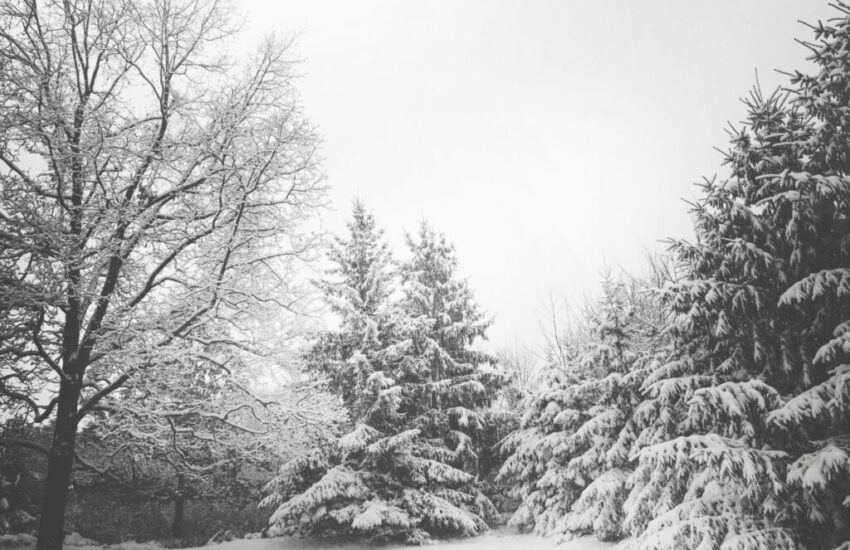How to Get Rid of Sinus Headache This Winter

Published Oct 19, 2020
If you’ve suffered from allergic sinusitis as I have, you know just how much the weather can affect your sinuses. At different times of the year, you will encounter varying irritants, all capable of aggravating or triggering your sinusitis. While spring brings about warmer temperatures and abundant pollen in the air, winter is its own animal. Winter causes our sinuses to act up, especially if we’re unprepared. We’ll be talking about the risks associated with winter and how we can prevent and relieve our sinus symptoms, including headaches and stuffy nose.
Winter and Sinuses
Winter brings about its own set of challenges, unique to those of spring and summer. It brings about cold temperatures, coupled with closed, damp houses, a recipe for allergies. The following are some risk factors that may aggravate your sinusitis:
Dry air – During winter, the outdoor air is much less humid than it is during other seasons. So, whether you’re on your morning commute or just enjoying the winter air, you will be breathing drier air. Additionally, when you get inside, indoor heating will only further dry out the air. Breathing dry air can lead to a host of health conditions, including bronchitis, asthma, and sinusitis. Your chances of contracting an infection are increased because the air dries out your sinuses, and the gooey mucus that would’ve otherwise trapped irritants will not function as designed.
Stale air – Because of the temperatures, doors and windows to offices and houses are shut tight. This means the air circulating inside rooms can get stale. Compound that even further by spraying air fresheners and other fragrances, and these air pollutants will continuously circulate in a trapped space and irritate your sinuses.
Air pressure – Air pressure is another factor known to cause pain or discomfort to the sinuses. When barometric or air pressure drops, the difference between the outside pressure and the one within our sinuses can result in pain. While this is more pronounced in sudden changes, such as in airplanes, the progressive drop when seasons change also affects us. This is seen mostly in older people, as we get more sensitive toward environmental factors with age.
Dust – Your furniture, especially carpets, rugs, and upholstered ones, carry a lot of dust, dust mites, molds, and other unwanted debris. With doors and windows locked, the air inside has nowhere to go. And when you sit on a couch or walk across your carpet, you’re sending these dust and other particles up into the trapped air. These irritants make the air extraordinarily stuffy and can lead to asthma and sinusitis.
Cold and flu season – Fall and winter are known as the flu season, and with good reason. These months show the highest instances of the flu, with peaks during December and February. If you have sinusitis, you know that even the slightest cold or flu can lead to your sinuses flaring up as well.

How to prevent sinus symptoms
Condition your air – Conditioning your air requires two things: desirable humidity and filtered from air pollutants. To prevent sinus flare-ups from occurring, use a humidifier to moisten the air that you’re breathing. You should also consider getting a HEPA (high-efficiency particulate air) filter or air purifier to reduce or eliminate the amount of debris in the air.
Clean your furniture regularly – We mentioned that dust, dust mites, and other typical house debris stick to upholstered furniture. If you’re planning to keep them around for the winter season, you will need to vacuum clean them with a HEPA filter consistently. All rugs, carpets, and furniture will require this.
Cover your beds and pillows – You’ll want to cover your mattresses and pillows with allergen-proof material and regularly wash your beddings in order to keep dust mites to a minimum.
Manage your pets – If you have pets running around your house, you will need to monitor them because pet dander may also cause problems. Keep them out of your bedroom and use an air cleaner to eliminate pet dander that could be lying around.
How do I get rid of a sinus headache?
One of the most prevalent symptoms of a sinus infection is a sinus headache. This occurs due to the buildup of mucus within the sinus cavity, causing pressure in the skull. Here are some things you can do to relieve the pressure and treat a sinus headache.
Flush – Use a Neti pot to flush out your sinuses. You’ll be using a saltwater solution to irrigate and hopefully eliminate the pressure within your sinuses. You can flush out your sinuses on a daily or weekly basis to keep your sinuses flowing cleanly. Use only distilled water for these solutions.
Spray – Many pharmacies offer over-the-counter nasal decongestant sprays containing saltwater, intended to keep your nasal passages moist, healthy and treat inflammation.
Hydrate – Drinking an ample amount of water keeps your nose and lungs lubricated and helps thin out your mucus. Avoid diuretics, such as caffeine and alcohol, which can cause dehydration.
Steam – Steam inhalation helps to keep your nasal passages moist. This also helps reduce the buildup, which eases a lot of the pain and opens up your sinuses.
Over-the-counter medication – OTC decongestants, pain relievers, and antihistamines (if allergies are the main culprit) helps relieve sinus pain and pressure. Before taking anything, you’ll want to consult with your doctor to ensure your medication won’t interfere with your other medicines or preexisting health conditions.
Benefit From The Latest Advancements In Probiotic Science With Bionaze
Bionaze is a proprietary blend of probiotics proven to promote ear, nose, and throat health, improve digestion, and support your immune system. The active ingredients BLIS K12, and BL-04 are considered among the best probiotics according to science.
Get 25% Off Your First Order when you use BIO25 at checkout!

This Content Has Been Reviewed For Factual Accuracy
This content has undergone thorough fact-checking by our team of internal experts. Learn more about the meticulous editorial standard for our website here.
ADVERTISEMENT

About The Author
Judy Ponio is a professional writer based in the Philippines. Her commitment to communicating factual content in when writing is unmatched. She works hard to cross check reputable sources to ensure her work uses accurate facts.




